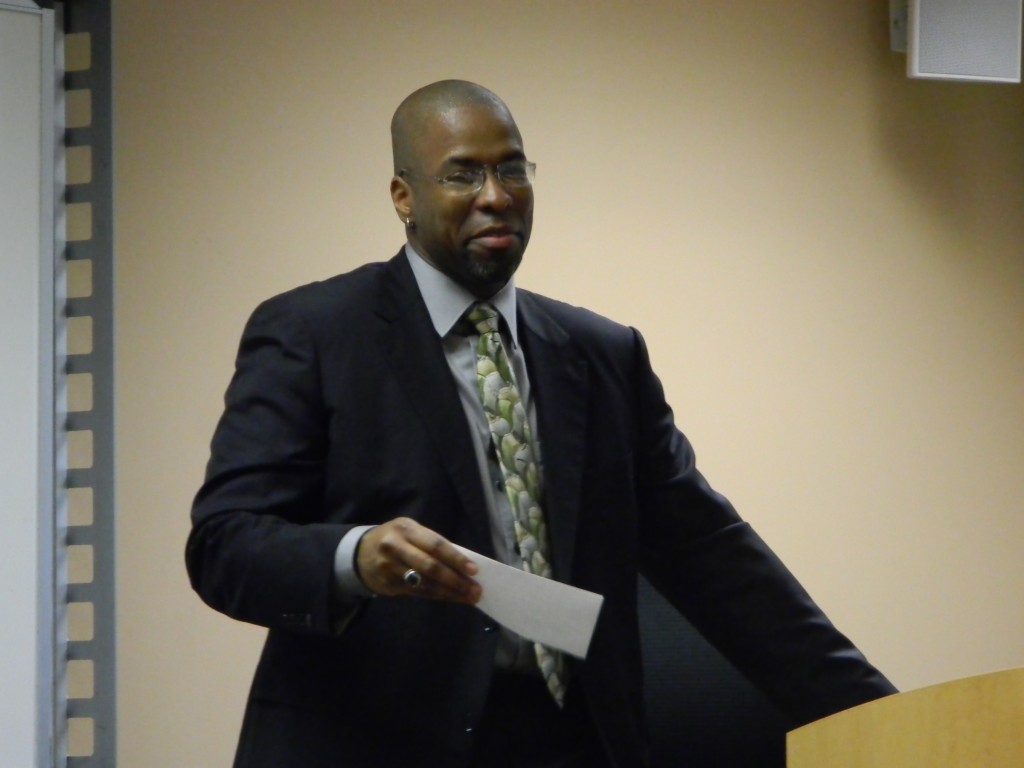Last semester, students in Dr. Scott Lambert’s topics in journalism class wrote an article that was published in the “St. Louis Beacon” about 1989 Millikin alum Jeffrey Sterling.
Sterling, a former CIA agent, has been accused of violating the Espionage Act for allegedly leaking confidential secrets to “New York Times” reporter James Risen. Sterling was arrested in 2011, but was not incarcerated due to Risen refusing to reveal his source. Although Sterling is currently free, his life remains in limbo – the case is still ongoing.
The latest development to happen within the case occurred in July. According to “The Washington Post,” the 4th Circuit Court of Appeals ruled that Risen could not use a reporter’s privilege to excuse himself from testimony. This ruling is now challenging First Amendment laws. The Justice Department has issued revised guidelines detailing how it would approach cases involving news outlets. A reporter’s testimony would not be pushed unless it was under extreme circumstances. This ruling is currently being appealed by Risen, and the case is back before the 4th Circuit Court. This ongoing case could last several more months.
For Sterling, things have been difficult.
“Waiting for the decision was bad enough,” he said. “That it took over a year to be issued made it excruciating. During the wait, I tried my best to put it in the back of my mind, but that was hard to do. When your life is in the balance, it’s hard to put such matters in the back of your mind. I make it day by day with the support of my wife and our friends and family.”
In regards to finding a job, Sterling has had no luck. When he was interviewed last spring, he said he couldn’t even get a job at a funeral home or 7-11.
“I’ve given up on trying to find a job that may be considered professional, or even related to the work experience I do have,” Sterling said. “Nonetheless, I am apparently un-hirable.”
Although life may be rough, Sterling isn’t giving up hope. After contemplating and talking with his wife, they both think it would be a good idea for him to go back to school and get an advanced degree in law once the case is over. Sterling wanted the masters of law (LLM) degree in a specialized area, right of publicity. The first school that came to mind was his alma mater, Washington University School of Law in St. Louis.
“I have had the thought that I need to try to do something so I will be in a position to get on with my life once this is all over,” he said. “With an LLM, I could be more attractive with regard to finding work in the legal sector.”
Not wanting to waste any more time, Sterling requested a personal meeting with someone from the school to explain his interest in being an LLM candidate and discuss his current situation. He thought it would be best to be up front about being under federal indictment but understood if the school would prefer for him to not apply until the case was concluded.
Sterling met with a dean and the point was made that the school would be hard-pressed to turn him down for the program, particularly since he is an alum. The meeting ended with the dean saying that he would meet with others at the school to discuss the matter and that he would be in touch with Sterling as soon as possible.
“The dean no longer answers my emails,” he said. “The school has also seen fit not to respond to my inquiry. It was difficult for me to put myself out there like I did and they don’t have the respect to tell me that I’m not suitable for their school.”
The dean could not be reached for comment.
“Given my experience in the job search, I can’t say that I am surprised by their reaction,” he said. “But, I am quite disheartened by the response, or lack of response I have received – I guess I can say their silence is another form of rejection. I would have thought a law school to be the type of place to understand my situation and have some sort of compassion. Seems, truly in this country you are guilty until proven innocent.”
Now, Sterling is looking into ways to somehow go into business for himself.
“If there’s no one out there who will hire me, I will just have to hire myself,” he said.
Junior Chelsea Dunmire was one of the contributors to the “St. Louis Beacon” article. She personally hasn’t been following the case since the article was published, but was disheartened to hear that Risen was being forced to testify.
“The Sterling case has been dragged on for so long already, and it is incredibly obvious that this case is much more about Risen and the media than any criminal actions Sterling may or may not have taken,” she said. “At this point, even if he is guilty, he has suffered enough. No one deserves the treatment he has had to endure.”
The only feedback Sterling has received from the “St. Louis Beacon” article is from friends who have read it. He says that they like how the article articulated that there is a human side to this drama.
“My wife and I appreciated that the article brought to light that there is a living, breathing person, whose life has been thrown asunder, in the midst of all this legal process,” he said.

